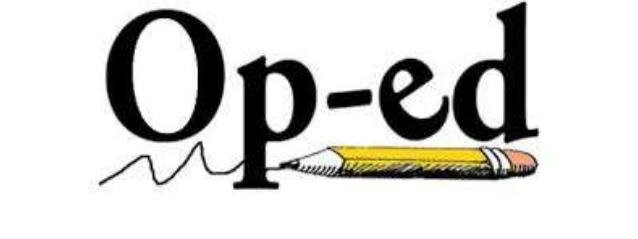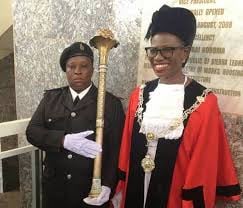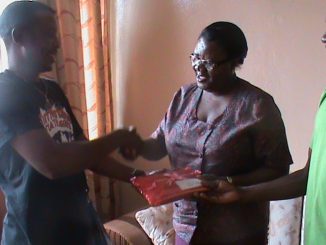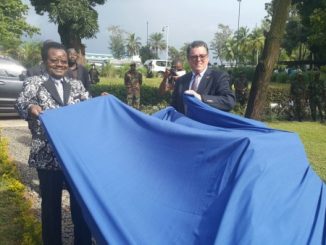
By Edward Kargbo
The fisheries ministry has come out with a statement to “set the records straight” on the #balckjohnson matter which has provoked a huge public outrage. For context, there have been concerns from residents/landowners over a government decision to allocate more than 250 acres of forest and beach land to build what many suspect will be a fish mill at Black Johnson—a small and tranquil village, with some of the most beautiful beaches along the Western Area Peninsular.
In a statement that has been circulated widely on social media, government deny that a fish mill will be constructed in the community. The plan, they say, is to build a fish habour that “centralises all fishing activities”. We don’t really know what that means.
The setting-the-records-straight statement, in my view, offers an official line with half answers. And the State should understand that a one-pager is clearly insufficient for setting the record straight on what has become a matter of public concern, with serious implications for livelihoods, tourism; and very importantly, the environment.
So, why Black Johnson? The state says it’s “the most suitable” location for the project because it offers the right conditions (technically) and less social and environmental impacts. What we don’t know is which other potential locations around the country were surveyed for this project. And why would one of your eco-tourism assets become the “most suitable” place to build a “fish habour”? Those who made the decision to reduce this piece of paradise (as described by some local and foreign visitors) to a fish habour owe the people a lot more explanation.
I’ll drop just two quotes here from visitors to remind us of the treasure that Black Johnson is. A reviewer on Trip Advisor wrote that “this is a great escape from the noise and sound pollution of Freetown and unlike most other beaches…really secluded.”
“I loved this place…and I could not believe what a paradise we arrived into”, another visitor said. This is just a couple of the many good reviews written by people who have visited and spent nights there, and you can read more on Trip Advisor. Sontem we nor know wetin we get.
I would think that Sierra Leone being what it is, provides many options for this project. There are sites and communities elsewhere in the country that have hosted fishing activities over many years, and one would ask why those places haven’t been designated as the site for this project. Isn’t it better to build on what already exists, than sacrifice an entire community and potentially most parts of the peninsular on the altar of “development”?
The Government says the project will have a waste management and recycling component. Whatever that means, the statement doesn’t even mention the result of the environmental impact assessment. As stated by the Government, the habour will centralise all fishing activities. It is not going to be a small-time business and unless there is full disclosure of the assessment and its outcome, no one would be convinced that a “waste management and recycling” component would be enough to mitigate the potentially disastrous impact of the fish habour and the activities that will come with it.
The cost of the project is said to be $55m and #China have offered a grant to pay for it. While this seems fine on the surface, it is important to ask why the Chinese are keen on supporting such a massive fishing project. It is definitely not the biblical John 3:16 case. Do we really believe that for #China so love Salone they granted us $50m to build a fish habour? Some good dae na for question am oh. Den kin say “too good to be true” na English!
From what we know so far, there has been no consultation with the people who live (or own land) in the area. And this is an issue that the government statement did not address. Although it says they have set aside money for compensation, they have not said whether they consulted the community. You’d imagine that such projects, with serious implications for people and their environment, would have the community and affected people involved at every stage of the decision-making.
I’ll shift from the fisheries ministry’s statement a bit and draw in the tourism and environment ministries. Where do these two ministries stand in all this? For the tourism ministry, this project is taking away one of your assets and has the potential to damage the others in the vicinity. One would expect that the tourism and environment ministries would have worked hard to discourage the move considering the impact on the environment and eco-tourism. To what extent have they been involved in this? These are another set of we-don’t-knows.
The way the whole thing has been hidden signals a lack of openness of process and that is a big red flag. You cannot do such a deal in secret and expect smooth sailing. The State must be transparent and sincere in dealing with this matter and they should understand that you can’t address such an important issue with a setting-the-records-straight statement that leaves the records looking murkier, providing half answers to the serious questions and concerns of the people.
There is a reason why people don’t trust the state. A plausible explanation for this is that over the years, the trust between state and society has been broken. People have been conditioned to unbelieve almost everything that comes from the state and its officials and suspect everything that they do. Lef me en go ask da posin na street if e trust Government. If the state recognises this breakdown of trust and sincerely wants to mend its relationship with the people, a good starting point would be to approach everything with transparency, inclusivity and a strong dose of GENUINE accountability.
REJOINDER BY KARIM BAH
The Black Johnson issue is a concern for many citizens. The predatory state conniving with the Chinese again. This article by Edward Kargbo eloquently articulate our collective sentiments on this issue.
Thanks to Edward Kargbo.
The black Johnson issue comes in the wake of another corporate gangster deal between the state and US owned company -Gerald Group. They claim to have settled their differences and agreed on a way forward for the continued exploitation of the land. It is telling that the owners of the land where the metals are found ie Salone People, get only 10% shares on their resources.
The people of Salone should demand nothing less than 50% ownership of all mining operations in the country as well as demand that these metals are processed locally, at least part of it, for local use. Iron ore is important for building, railways, machinery, industry etc, why not produce our own iron ore for our local use here ? Why ? Why just 10% for Salone people and 90% to foreign companies? This may seem an improvement from the previous deal, where we got 0% thanks to Ernest Bai Koroma, but it is still a bad bad deal for the people of Salone.
In fact we should seriously be planning to phase out from this extractive economy which eventually is unsustainable and destructive to the environment.
Stop the exploitation and destruction of our land, seas and forests.



